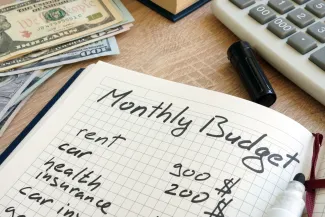
Prescription drug donations would help uninsured patients under new Colorado law
A new Colorado law will let people donate their unused and unopened prescription drugs so that other patients can access them for free or a minimal cost.
Governor Jared Polis signed Senate Bill 25-289 into law Wednesday, which establishes the state’s drug donation program.

“Every year, the United States spends billions to dispose of unused prescription medicines from nursing homes, assisted living residences, hospices, and jails,” bill sponsor Senator Lisa Cutter, a Jefferson County Democrat, said in a statement. “Additionally, many left-over prescriptions are flushed down the toilet or thrown into the trash, which causes immeasurable harm to our environment and water supply. With this new law, we are creating a program to reduce waste, protect the environment, and help Coloradans access the medication they need.”
The bill was also sponsored by Representative Kyle Brown, a Louisville Democrat, and Representative Emily Sirota, a Denver Democrat. It passed the House and Senate with bipartisan support.
The program relies on the work from a task force on the issue created in 2022. Colorado technically already allows for re-dispensing of medication under limited circumstances, but there isn’t an easy mechanism for patients to access those drugs. There is one program in the state, at a clinic in Colorado Springs, that accepts donated medications from nursing homes.
Under the new law, individuals and institutions such as long-term care facilities, nursing homes and prisons will be able to more easily donate medicine to hospitals, clinics and pharmacies. That medicine would then be used to fill prescriptions for low-income and uninsured patients.
In 2021, about 10 percent of Coloradans did not fill a prescription because of cost, according to a report from the Colorado Health Institute.
The program won’t allow for the donation of opioids, scheduled medications and medicines that require special storage conditions unless the recipient can ensure correct storage. The recipient of the donated drugs will be required to keep records of donations, keep the donated drugs separate from regular stock and have a licensed pharmacist inspect the donation.
Forty-five states have drug repository programs in place, according to the National Conference of State Legislatures, though the program scopes vary. Georgia’s program, for example, has filled over 981,000 prescriptions worth more than $78 million over eight years. Wyoming’s program has existed since 2007 and has helped about 29,000 patients.















